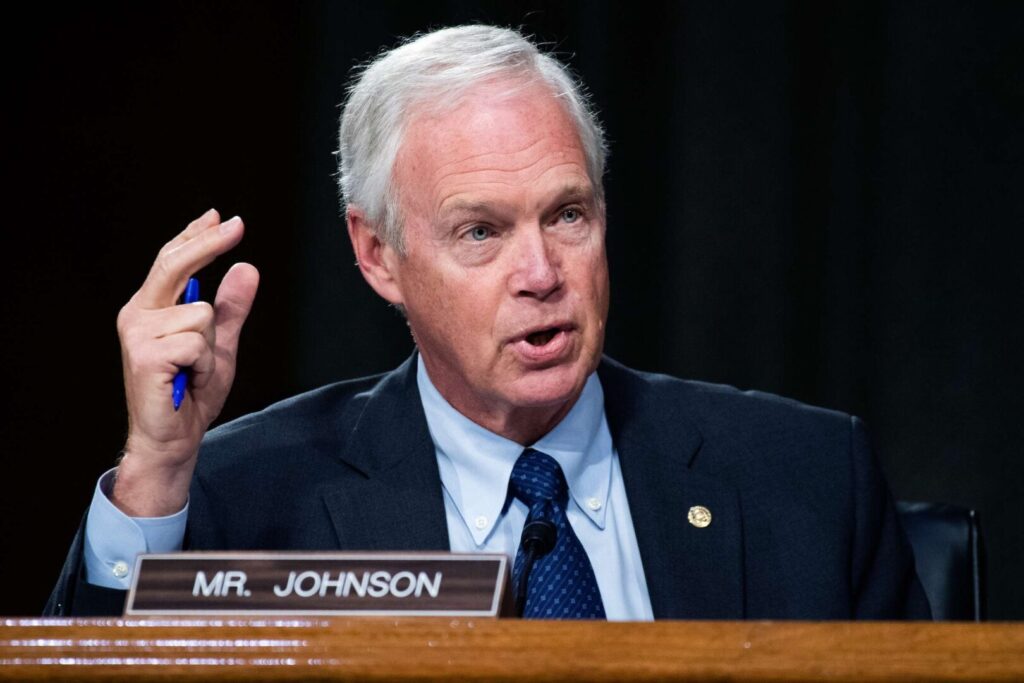The House of Representatives narrowly approved President Donald Trump’s $9 billion rescissions package early Friday, giving final congressional approval to sweeping budget cuts that target public broadcasting and foreign aid programs.
The legislation, which passed by a vote of 216-213, represents the first successful presidential rescissions request in decades. The bill now heads to Trump’s desk for his signature, with White House officials signaling that additional proposals to cut federal spending may follow.
“We need to get back to fiscal sanity, and this is an important step,” said House Speaker Mike Johnson, R-La.
Despite unease among some Republicans about the depth and focus of the cuts, most ultimately supported the measure, wary of bucking the president or his agenda. The vote came just hours after Senate Republicans advanced the bill on a 51-48 party-line vote, with no Democrats supporting it.
Cuts Target Public Broadcasting and Foreign Aid
The package includes a $1.1 billion cut to the Corporation for Public Broadcasting (CPB), the full amount slated for distribution over the next two fiscal years. Another $8 billion in cuts will affect foreign aid programs supporting refugees, disaster relief, and democratic development in countries facing instability and poverty.
The White House has defended the cuts as necessary to trim what it sees as bloated or ideologically misaligned institutions. Rep. Virginia Foxx, R-N.C., chair of the House Rules Committee, said the plan returns power to taxpayers.
“The money that we’re clawing back in this rescissions package is the people’s money. We ought not to forget that,” Foxx said.
But Democratic Leader Hakeem Jeffries criticized the move, calling it a dangerous precedent and warning that the decision undercuts bipartisan spending agreements.
“No one is buying the notion that Republicans are actually trying to improve wasteful spending,” Jeffries said. “This is not an America First bill. It’s a China First bill because of the void that’s being created all across the world.”
The CPB funding loss especially alarmed lawmakers from rural states who rely heavily on local public radio and television for safety and emergency information. Sen. Lisa Murkowski, R-Alaska, voted against the measure, citing public broadcasting’s role in issuing tsunami, landslide, and volcano alerts in her state.
As the Senate debated the bill Tuesday, a 7.3 magnitude earthquake struck off the Alaska Peninsula—triggering tsunami alerts that were broadcast over public stations.
“This is not just your news—it is your warning system,” Murkowski said.
Foreign Aid Cuts Draw Global Concerns
Foreign aid cuts include $800 million from programs that provide shelter and reunification for refugees, $496 million in humanitarian assistance for nations struck by conflict and natural disasters, and $4.15 billion from initiatives that promote economic and democratic development.
Democrats argued the move could undermine global stability and allow rivals like China to expand their influence.
The White House countered that the cuts would encourage other nations to shoulder more responsibility for international crises.
One provision, a proposed $400 million cut to PEPFAR, a widely praised global HIV/AIDS program, was removed from the bill after pushback from both parties. PEPFAR has been credited with saving millions of lives since its creation under President George W. Bush.
Concerns About Process and Precedent
Unlike most spending bills, the rescissions package only required a simple majority due to its origin from an official presidential request. That allowed Republicans to bypass the Senate filibuster threshold of 60 votes and push the bill through with their 53-47 majority.
Some Republicans expressed discomfort with the process and the lack of transparency.
“Let’s not make a habit of this,” said Senate Armed Services Chair Roger Wicker, R-Miss., who voted for the bill but cautioned against eroding Congress’s role in appropriations.
OMB Director Russ Vought, speaking to reporters Friday, said the passage showed “enthusiasm” for getting the nation’s finances under control and hinted at more rescissions to come.
“We’re happy to go to great lengths to get this thing done,” Vought said. He acknowledged that the $9 billion figure was modest but said it was crafted carefully: “I knew it would be hard” to pass in Congress.
With the 2026 budget fight looming, the bill signals a new era of aggressive budget-slashing under Trump, who has promised to reshape the federal government’s footprint and trim programs that he and his allies see as unnecessary or politically antagonistic.



